My Anime of 2023: Pluto
So here is an interesting concept I’d like my readers to wrap their head around. Take a look at the two pictures below:
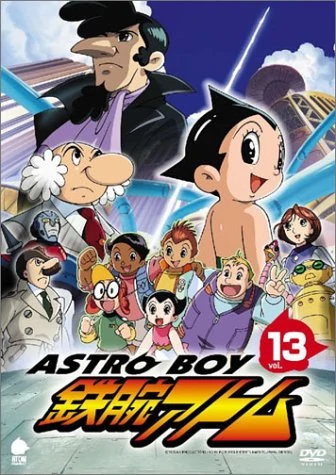
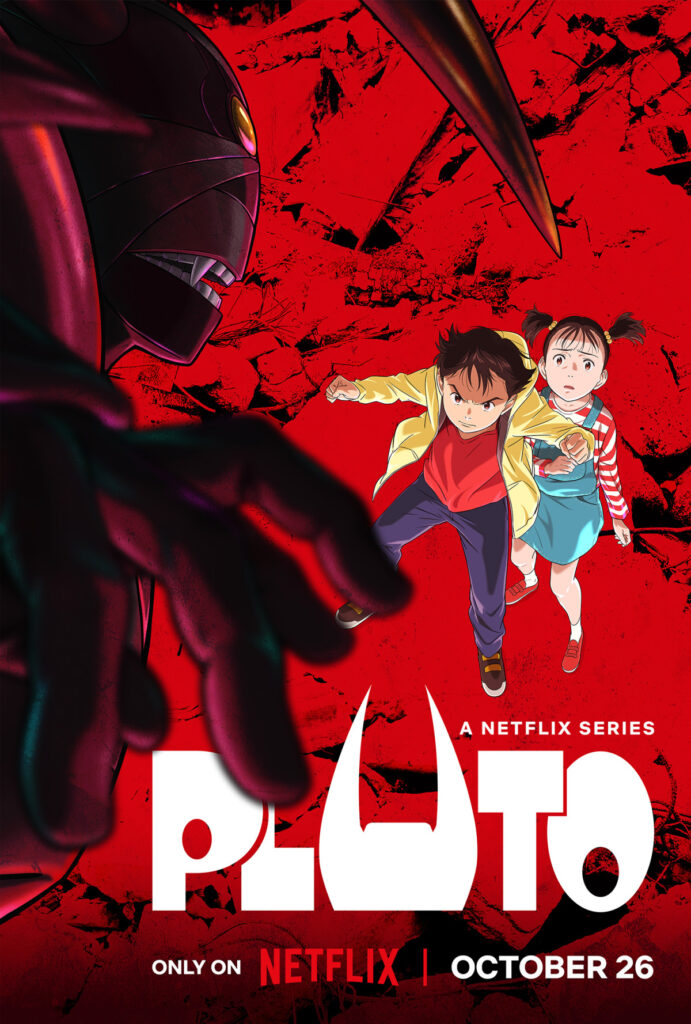
On the left, you have a picture of Astro Boy. An iconic kids anime about a kid robot fighting crime, evil, and injustice in a futuristic world.
On the right, you have a picture from the anime Pluto, a dark, gritty detective thriller about a futuristic robot detective working for Europol tasked with solving a string of human and robot murders.
What if I told you that both shows are based on the same story?
For those unfamiliar with how influential Astro Boy is to anime, I would say it is comparable to Mickey Mouse’s influence on cartoons. Pluto serves as a reboot of the “Greatest Robot on Earth” story arc in Astro Boy, an arc that can arguably be considered one of the most influential stories to grace Japanese manga and anime. However, this reboot adds a darker, more gritty and adult tone to the story. The idea may sound cool to some but it could sound silly to others. Thankfully, the manga for Pluto was written by a renowned Seinen mangaka, Naoki Urasawa, who also happens to be my favorite author from Japan.
Who is Naoki Urasawa?
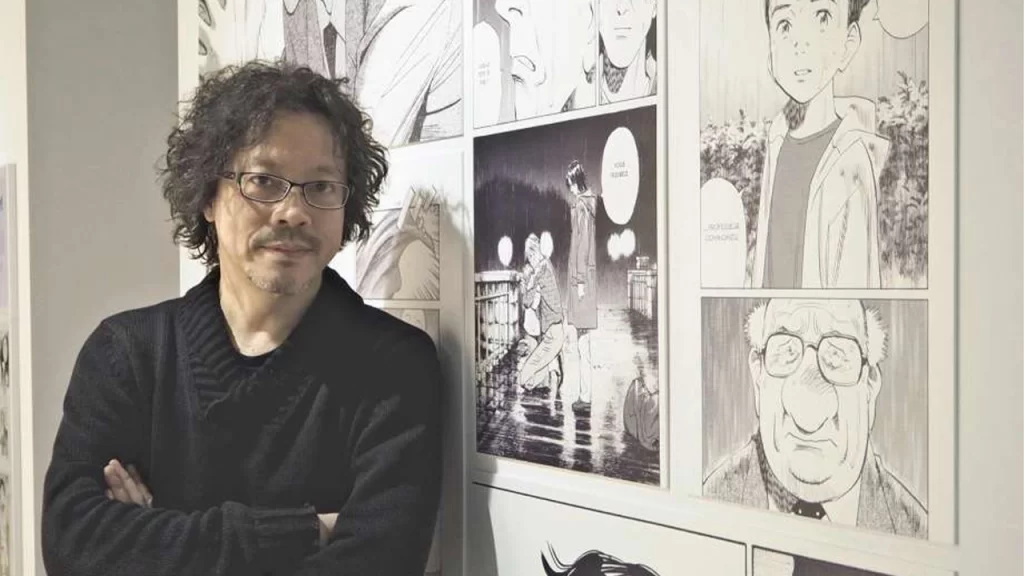
For those not familiar with Urasawa, he is well-known for his works in the adult thriller genre of manga. It is safe to say his stories are for a very niche audience as most anime/manga is targeted towards a teenage audience. But for those who want to delve into the world of adult oriented anime/manga, Urasawa is perhaps one of the most iconic names you will come across. Aside from Pluto, a few of his other iconic works include Monster, 20th Century Boys and Billy Bat. I would talk more about my love for Urasawa’s writing, but that is a post for another time.
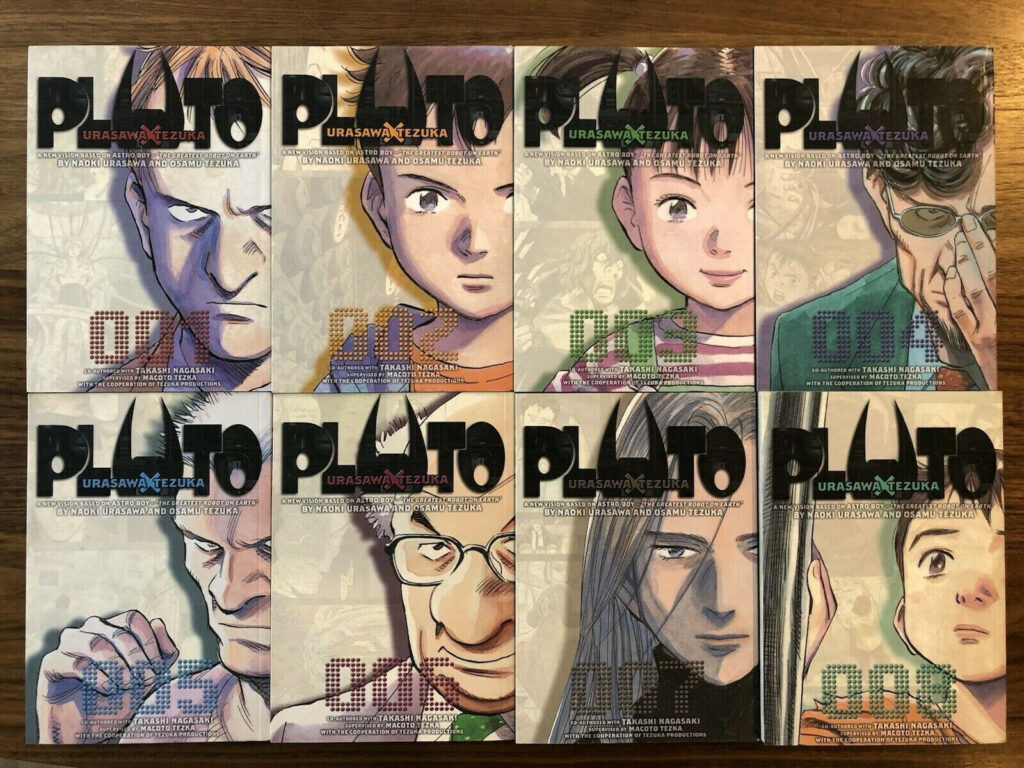
I first heard about Pluto years back. When I heard the premise, I fell in love instantly. Aside from the fact that this was written by my favorite Japanese Author, I just found the concept of rebooting a kids anime fascinating. What I loved most about Pluto was how it was faithful to Astro Boy by keeping so many of the important elements from the original story while adding new elements that suite the adult tone set by Urasawa. such as the symbolism and allegories on war, nuclear weapons and the co-existence of robots with humanity while adding new elements to suite the mature tone set by Urasawa.
Faithfulness to the Original
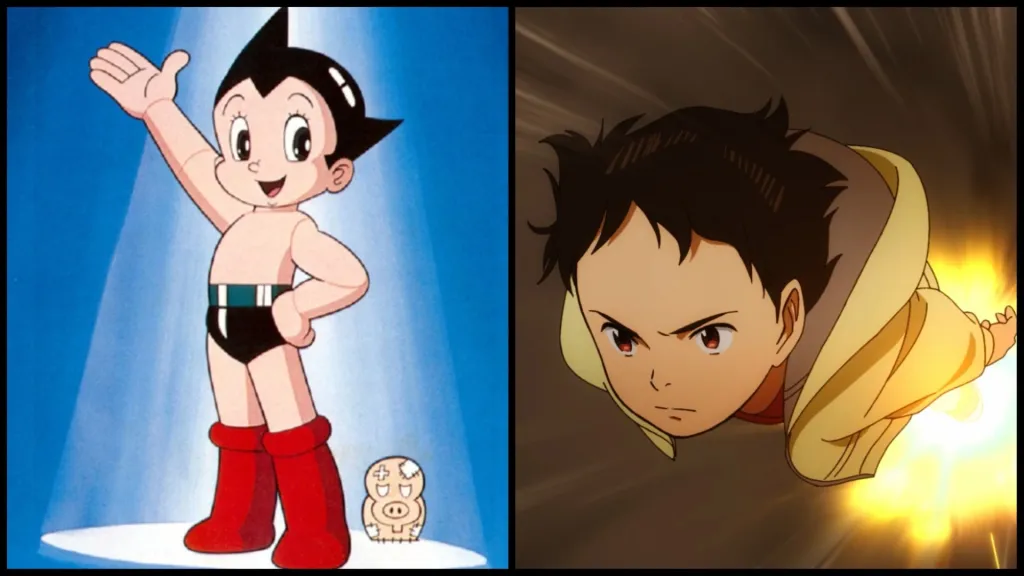
I mentioned Astro Boy and its influence to anime. But what elements contributed to this story being so iconic? The mangaka behind Astro Boy, Osamu Tezuka, released his series in 1952 shortly after World War II. The entire country of Japan was in need of healing following the devastating bombings of Nagasaki and Hiroshima, both of which were events that greatly effected Tezuka. Despite being a kids show, Astro Boy served as a major work that helped Japan heal from the effects of World War II as well as served as an allegory criticizing the effects of nuclear warfare.
For Pluto, despite the story being so drastically different, the same themes criticizing warfare and nuclear weapons still remain. As opposed to an allegory on World War II, Urasawa decided to go with another war Americans may be more familiar with, the Iraq war.
War

The story of Pluto starts out with our main character, Gesicht (Not Atom aka Astro Boy) investigating the murders of Monte Blanc, a robotic war hero, and a human politician who advocated for robotic rights. Eventually, the story begins to center around the 7 most powerful robots in the world (including Gesicht) and their roles in this murder mystery. Specifically, the backstory of these robots centers around their role in a Persian war (Which is an obvious symbol for the Iraq War). The plot shows these “Robots of Mass Destructions” as war veterans haunted by their past of living with the consequences of their time in Persia.
I mentioned earlier about Astro Boy’s focus on criticizing warfare and the use of weapons of mass destruction. Such themes are present here in Pluto as the story showcases the robots were used not only as weapons but as propaganda figures to ensure the world viewed the Persian war as a necessary thing. However, our robot characters do not feel the same way as they face conflict with their actions as well as question what they were made for.
Although the approach is vastly different than in Astro Boy, I do believe Urasawa did a fantastic job of showcasing an understanding of Tezuka’s intention with the allegories on war while adding his own unique twist. I believe that this is proof that reboots do not need to create an exact replica of the original, but at the very least, if changes are to be made, an understanding of the original story must be there.
Evolution
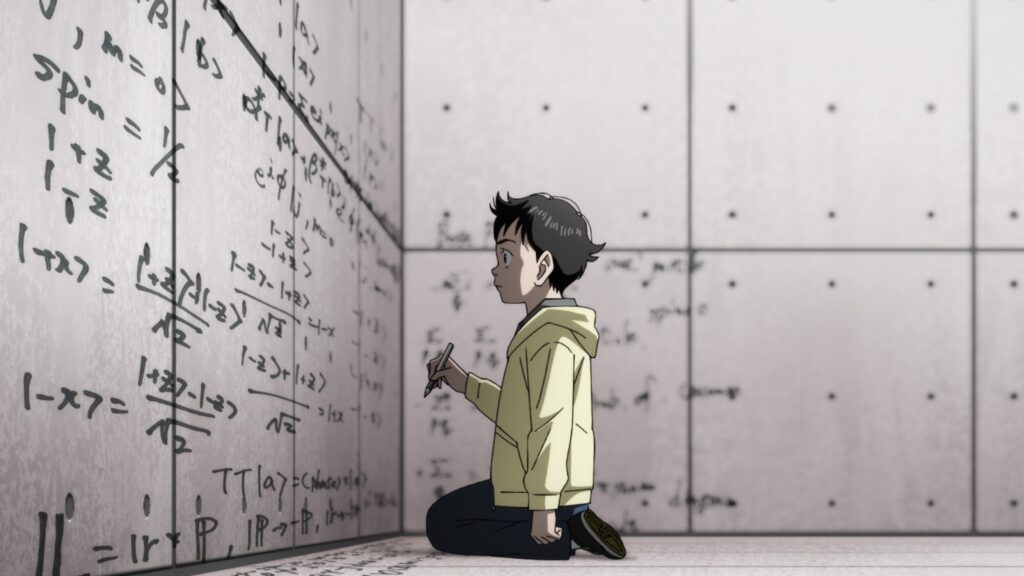
Astro Boy is known to explore the effects of a world where robots and humans live side by side. However, Pluto delves into this topic in a more philosophical sense. What makes an AI perfect? Is it the ability to display human emotions? Or something deeper?
In the world of Pluto, AI has become so advanced, the line between man and robot is blurred. In the first episode of the anime, we saw our main protagonist, Gesicht, visit the wife of a robotic police officer who passed away. Despite being a robot, the wife learns to express grief over her husbands death. This is the first instance we see of robots displaying emotion in the show. As the series goes on, we see additional scenes of heavy emotion depicting feelings of grief, vengeance, and happiness. The concept of robots learning to act more alive is a heavy theme in Pluto and one that makes the audience question what it really means to be human.
Hatred in the Human Nature
As with most of this review, I won’t spoil too much, but I will mention certain elements for the very first episode. I mentioned above how the concept of emotions within AI is explored heavily in Pluto. Well, one such emotion is given a decent amount of coverage, hatred.
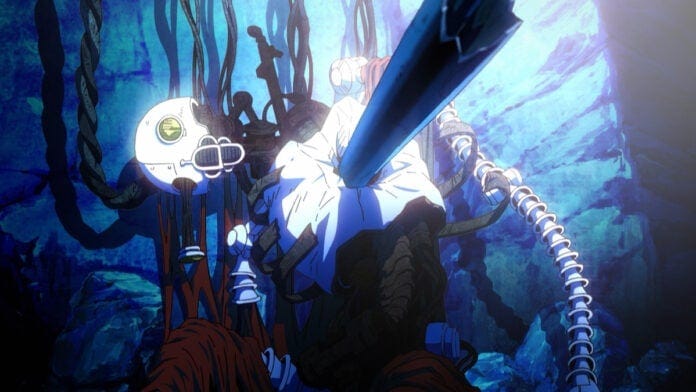
In the first episode, you are introduced to a key character, Brau 1589, the first robot to murder a human being. He differs from our protagonists and serves as an opposing foil encouraging our robot characters to delve deeper into their dark thoughts. When Brau’s creators checked his programming, they swore it was a malfunction. In the end however, nothing was wrong with Brau, he was programmed perfectly to mimic human behavior. So this begs the question, what emotions drove his murderous actions? Hatred for mankind?
The further we go into the story, the more this emotion is explored with Gesicht exploring the emotion behind memories he can’t quite remember to Atom (Astro Boy) learning to rise above the hate and Pluto struggling with feelings of vengeance as he tracks down the 7 most powerful robots in the world.
Rising Above
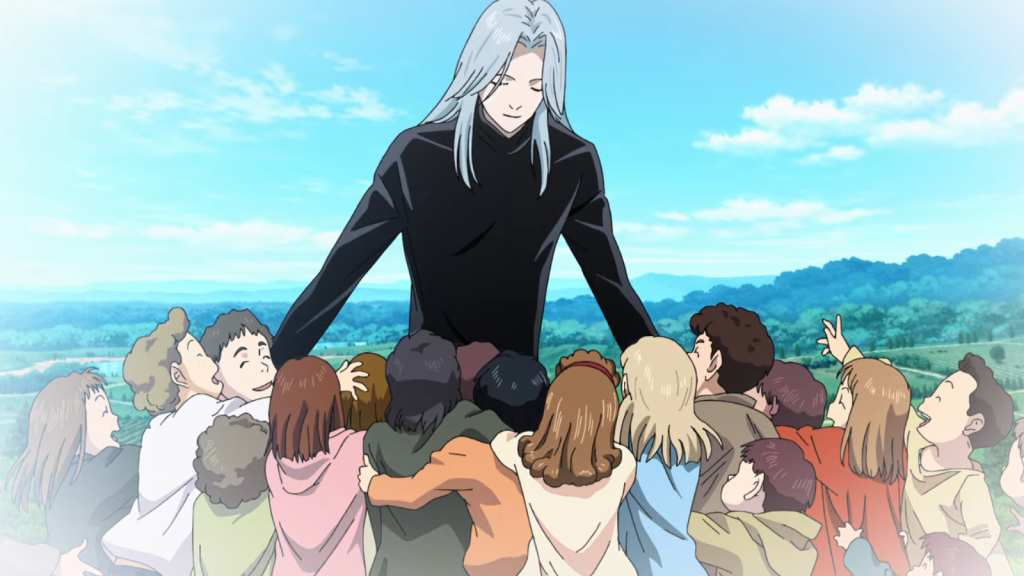
Despite the rather depressing tone of the anime, the story does try to have a more hopeful message underneath all of this struggle. Atom as a naïve, child-like robot does not compute nor understand the feelings of hatred and struggles to deal with the emotions once it is discovered. Gesicht as a grizzled detective, his to learn to deal with his negative emotions and ponder whether it ever goes away. Rather than give into negative feelings, the story encourages the viewers to rise above and conquer these negative emotions. Robots underneath all of those complex feelings of hatred and vengeance learn to exhibit compassion and forgiveness. Some characters discover this through humans themselves while others discover it through learning to have to face the gravity of their sins.
Conclusion
Pluto brilliantly brings the most iconic arc of Astro Boy to a modern audience in a unique way while being faithful to its original inspiration. Naoki Urasawa showcases his understanding of the Tezuka’s vision on telling a story of war and justice while weaving in his own unique themes on AI and the human nature. You do not need any prior knowledge of Astro Boy to appreciate Pluto and its greatness. I highly recommend it for those looking for a unique sci-fi thriller unlike any other. This is an anime serves as an analysis of the effects of an evolving tech world, an analysis of politics and an analysis of human nature. Perhaps we all might learn something about what it means to be human.

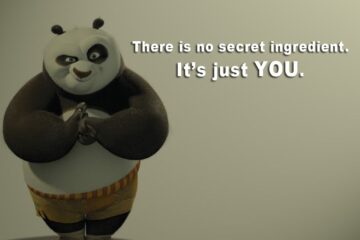
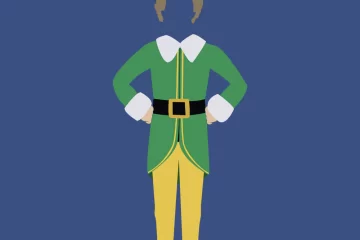
0 Comments